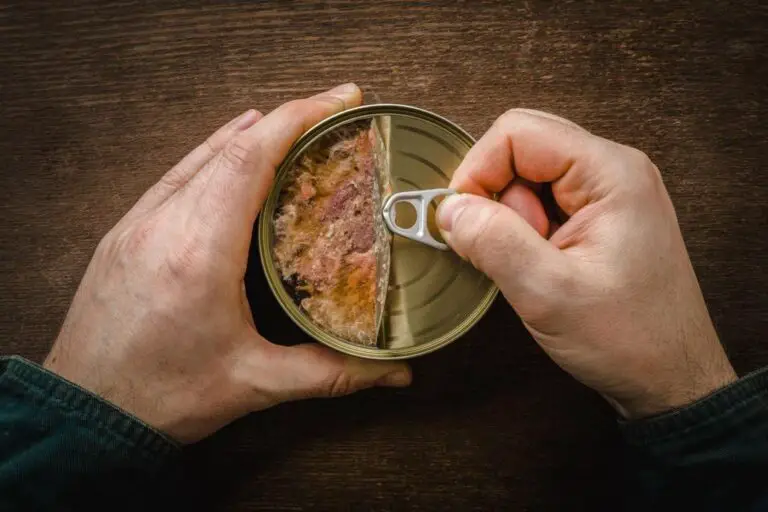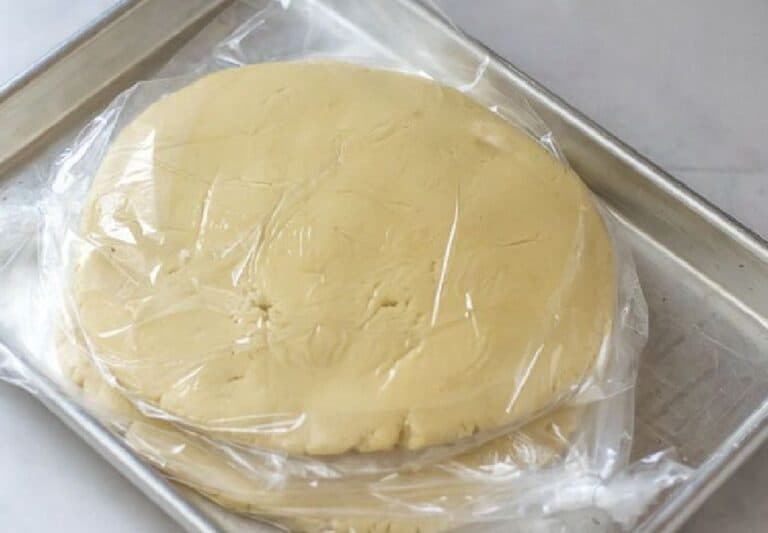Freezing Cookies Dough before vs after Baking: Which one is Better?

Are you a baking enthusiast who loves to whip up a batch of fresh cookies whenever the craving hits? Do you often find yourself short on time during the holiday season, struggling to get everything done on time?
If so, you may have wondered about the best way to freeze cookie dough to save time and reduce stress. But with so many conflicting opinions out there, it can be hard to know whether to freeze your dough before or after baking.
That’s why we’re here to settle the debate once and for all and help you decide which method is right for you. So grab a cup of coffee, put on your apron, and let’s dive in!
Freezing Cookies Dough before Baking
Freezing cookie dough is an excellent way to save time and reduce stress during the busy holiday season. Many cookie recipes can be prepared in advance and stored in the freezer, allowing you to bake fresh cookies whenever you need them. In particular, freezing cookie dough before baking is a useful technique that can ensure your cookies come out perfect every time.
One of the benefits of freezing cookie dough before baking is that it allows the dough to rest, which enhances the flavor and texture of the cookies. When the dough is frozen, the ingredients have time to meld together, resulting in a more complex flavor. The cold temperature of the freezer can cause the butter in the dough to solidify, resulting in cookies that are softer and chewier when baked.
Freezing cookie dough lets you shape and size cookies. By pre-portioning the dough and freezing it, you can ensure that your cookies are all the same size, which will make for a more visually appealing batch. Additionally, freezing the dough allows you to shape it into different forms, such as logs or discs, which can be easily sliced or rolled out when you’re ready to bake.
To freeze cookie dough, begin by preparing the dough as usual. Once the dough is ready, portion it into balls or other desired shapes, and place them on a baking sheet lined with parchment paper. Then, place the baking sheet in the freezer and allow the dough to freeze completely. Once frozen, transfer the cookie dough to tupperware or an airtight container or resealable plastic bag, label it with the type of dough and the date, and return it to the freezer.
When you’re ready to bake the cookies, simply remove the dough from the freezer and allow it to thaw in the refrigerator overnight. Once thawed, the cookie dough can be baked as usual, with no need to adjust the recipe. This method can save you time and ensure that you always have fresh, homemade cookies on hand.
Freezing Cookies Dough after Baking
While freezing cookie dough before baking is a popular technique for convenience and freshness, freezing baked cookies is also an option. However, it is important to keep in mind that freezing pre-baked cookies can result in a change of texture and flavor.
When freezing pre-baked cookies, you need to allow them to cool completely before placing the chill cookie dough in the freezer. If cookies are still warm when they are placed in the freezer, it can cause excess moisture to form and create ice crystals, which can alter the texture and taste. To prevent this, allow the cookies to cool completely to room temperature before wrapping them in plastic wrap or an airtight container.
Cookies that are high in fat, such as shortbread or sugar cookies, tend to freeze well and can maintain their texture and taste. However, cookies with a lot of moisture, such as cake-like cookies, may not fare as well and can become soggy or lose their structure when frozen.
When it comes time to thaw frozen cookies, do so gradually. Remove the cookies from the freezer and allow the chilling cookie dough to thaw in the fridge for a few hours before bringing them to room temperature. This slow process of thawing will help the cookies keep their texture and taste.
While freezing pre-baked cookies can be a convenient way to have a stash of sweet treats on hand, take note that they may not be as fresh or flavorful as freshly baked cookies. For the best taste and texture, it is recommended to bake cookies fresh and freeze the dough instead.
Freezing Cookies Dough before vs after Baking: Which one is Better?
When it comes to freezing cookies, the decision to freeze the dough before or after baking largely depends on personal preference and convenience. Both methods have their pros and cons, and ultimately, it comes down to what works best for you.
Freezing cookie dough before baking is a popular option because it allows you to have fresh-baked cookies on hand whenever you want them. With frozen cookie dough, you can simply take out the desired amount of dough, allow it to thaw in the fridge, and bake as usual. This method can be especially convenient for busy schedules or last-minute cravings.
Another advantage of freezing cookie dough before baking is that it can help improve the texture of the cookies. When the dough is frozen, the fats in the dough solidify and can take longer to melt when baking, resulting in cookies that spread less and maintain a thicker, chewier texture.
On the other hand, freezing pre-baked cookies can also have its advantages. For one, it eliminates the need for any additional prep work when you want a quick snack or dessert. Pre-baked cookies can also be easier to store in small batches, making it easy to grab just a few at a time.
But, as was already said, freezing cookies that have already been baked can change their texture and taste. The cookies can become dry or lose their structure, making them less enjoyable to eat. It’s also important to wait until the cookies are completely cool before putting them in the freezer, so that extra moisture and ice crystals don’t form.
| Freezing Cookie Dough Before Baking | Freezing Cookie Dough After Baking | |
| Pros | Allows for pre-portioning and easy baking later; Enhances flavor and texture due to rest time in the freezer; Easy to control size and shape of cookies | Can extend the shelf life of cookies; Provides a quick and easy snack on demand |
| Cons | Can be time-consuming to portion and freeze dough beforehand; May affect the leavening agents in the recipe; Texture can be affected if dough is not thawed properly | Can result in dry, crumbly cookies if not frozen and thawed properly; Limits the ability to control the size and shape of cookies |
Overall, freezing cookie dough before baking is a great option for those who want to have fresh cookies on demand, control the size and shape of their cookies, and enhance the flavor and texture. However, it does require some advance preparation, and the leavening agents in the recipe can be affected if the dough is not handled properly.
Freezing cookie dough after baking, on the other hand, can extend the shelf life of cookies and provide a quick snack option, but it may result in dry, crumbly cookies if not frozen and thawed properly, and limits the ability to control the size and shape of cookies.
Does Freezing Cookie Dough Change the Taste?
The answer, however, is not as straightforward as a simple yes or no.
When you freeze cookie dough, it does undergo some changes. Freezing can affect the texture and consistency of the dough, as well as the way it bakes. For example, frozen cookie dough tends to spread less during baking, which can result in a denser, chewier cookie.
However, the taste itself is largely unaffected by the freezing process. The flavors and ingredients that you put into your dough will remain the same, regardless of whether you freeze it or bake it immediately.
That being said, if you want your frozen cookie dough to bake up just like freshly made dough, there are a few tricks to keep in mind. One crucial thing is to let the dough thaw properly before baking. Thawing the dough in the fridge for 24 hours will help it to come to room temperature slowly, which will make it easier to handle and ensure that it bakes evenly. If you try to bake frozen dough right out of the freezer, it may not cook evenly, resulting in burnt edges and undercooked centers.
Another tip is to adjust your baking time and temperature when using frozen cookie dough. Since it tends to spread less than fresh dough, you may need to bake it for a few minutes longer or at a slightly higher temperature to get it to the desired level of doneness. Keep a close eye on your cookies as they bake and adjust the time and temperature as needed to achieve the perfect texture.
Does Freezing Cookie Dough Change Texture?
When it comes to freezing cookie dough, texture is an important factor to consider. While the taste of the dough may remain the same, freezing can affect the texture and consistency of the final product. However, with the right techniques and precautions, it is possible to freeze cookie dough without sacrificing its delicious texture.
When freezing cookie dough, one of the hardest things to do is keep ice crystals from forming. When the water molecules in the dough freeze, they expand and can damage the cell walls of the dough, causing it to become tough and chewy. To avoid this, you need to wrap the cookie dough tightly in plastic wrap or an airtight container to prevent any moisture from escaping. This will help preserve the dough’s texture and prevent ice crystals from forming. (Read: Can You Freeze Cookie Dough with Egg in It?)
Another key factor to consider when freezing cookie dough is the type of dough you are working with. Some doughs, such as those made with butter or cream cheese, can be more prone to texture changes when frozen. To help maintain the texture of these doughs, it’s a good idea to freeze them in smaller portions. This will help them to freeze and thaw more evenly, preventing any uneven texture changes.
There are a few techniques you can use to maintain the desired texture. One method is to allow the dough to thaw in the fridge for 24 hours before baking. This will help to bring the dough to room temperature slowly, which can help to maintain its texture and prevent any overbrowning or uneven baking. Another method is to slightly underbake the cookies. This will help to keep them soft and chewy, even after freezing.
FAQs
Should I make any adjustments to the cookie dough before freezing it?
It’s best to freeze cookie dough in individual portions or as pre-formed cookies. You may need to adjust the baking time slightly when using frozen dough.
Can I freeze cookie dough that contains nuts or other mix-ins?
Yes, you can freeze cookie dough with nuts or mix-ins. Just ensure that they are evenly distributed within the dough and follow the recommended storage guidelines.
Can I freeze cookie dough for a long period, like several months?
Yes, cookie dough can typically be frozen for up to three months. Make sure to use airtight containers or freezer bags to prevent freezer burn.
Should I adjust the baking time when using frozen cookie dough?
When baking frozen cookie dough, you may need to slightly increase the baking time compared to fresh dough. Monitor the cookies closely to avoid over or underbaking.






